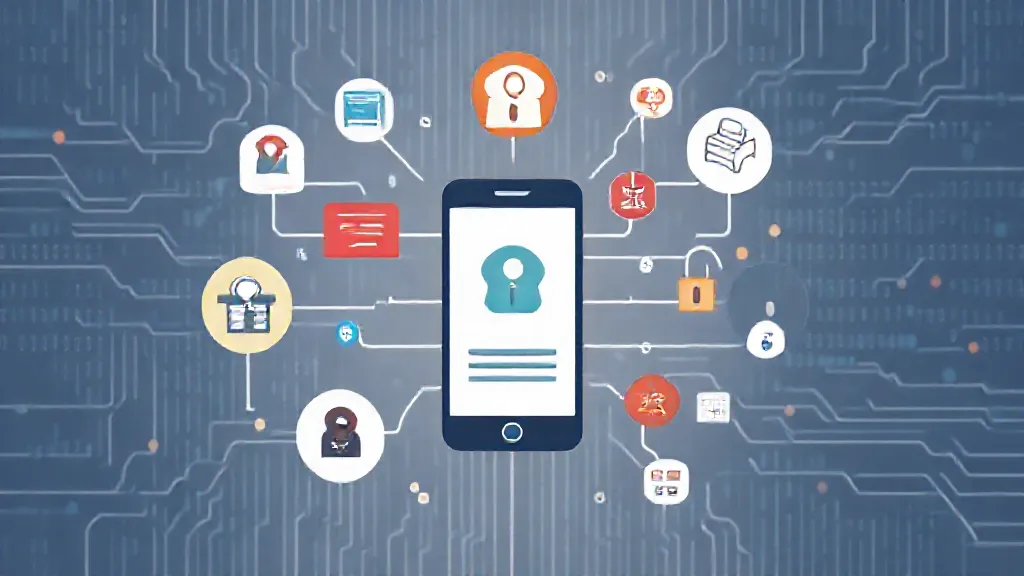In the digital age, mobile applications have become an integral part of daily life, offering convenience and connectivity. However, the practice of data sharing in these apps poses significant risks to users. This article delves into the various risks associated with data sharing in mobile applications, examining the implications for privacy, security, and user trust.
The Privacy Paradox: Sharing vs. Security
Data sharing in mobile apps often involves the collection of personal information, including location, contacts, and usage patterns. While users may benefit from personalized experiences, they often overlook the privacy implications.
The paradox lies in users' willingness to trade personal data for enhanced services, often without fully understanding the consequences. For instance, a popular fitness app may request access to a user's location data to provide tailored workout suggestions, but this same data could be exploited for targeted advertising or sold to third parties.
Data Breaches: A Growing Concern
One of the most pressing risks of data sharing is the potential for data breaches.
Cybercriminals are increasingly targeting mobile apps to access sensitive user information. High-profile breaches, such as the 2020 Twitter hack, highlight the vulnerabilities within app security. When apps share data with multiple entities, the risk of exposure increases, leading to potential identity theft and financial loss for users.
According to a report by IBM Security, the average cost of a data breach in 2021 was $4.24 million, underscoring the financial implications for companies and users alike.
User Trust and Reputation Damage
The willingness of users to share their data is closely tied to their trust in the app developers.
When data breaches occur or when users feel their data is mishandled, it can lead to a significant loss of trust. Companies like Facebook have faced backlash over data privacy issues, resulting in a tarnished reputation and decreased user engagement. Maintaining transparency about data usage and sharing practices is crucial for app developers to foster trust and ensure continued user participation.
Regulatory Landscape: Navigating Compliance
With the rise of data privacy concerns, governments worldwide are implementing stricter regulations regarding data sharing. The General Data Protection Regulation (GDPR) in the European Union mandates that companies obtain explicit consent from users before collecting their data. Similarly, the California Consumer Privacy Act (CCPA) grants California residents the right to know what personal information is being collected and how it is used.
App developers must navigate this complex regulatory landscape to avoid hefty fines and maintain compliance while ensuring user data is handled responsibly.
Informed Consent: The Key to Empowering Users
Informed consent is a critical aspect of data sharing in mobile apps. Users should be provided with clear and concise information about what data is being collected, how it will be used, and with whom it may be shared.
This empowers users to make informed decisions about their data. For example, an app that clearly outlines its data-sharing policies and allows users to opt out of certain data collections can enhance user confidence and foster a more positive relationship between developers and users.
The Role of Encryption in Data Protection
To mitigate the risks associated with data sharing, developers can implement robust encryption methods to protect user data.
Encryption ensures that even if data is intercepted, it remains unreadable to unauthorized parties. For instance, messaging apps like Signal use end-to-end encryption to safeguard user conversations, making it difficult for third parties to access sensitive information. By prioritizing encryption, app developers can enhance security and reassure users about the safety of their data.
Educating Users on Data Risks
User education plays a vital role in mitigating the risks of data sharing. Developers and privacy advocates should work together to inform users about the potential dangers of sharing personal information through apps. Workshops, webinars, and informative content can empower users to understand the implications of their data-sharing choices.
By fostering a culture of awareness, users can make more informed decisions and take proactive steps to protect their privacy.
Future Trends: Balancing Innovation and Privacy
As technology continues to evolve, the landscape of data sharing in mobile apps will also change. Emerging technologies such as artificial intelligence and machine learning will enable more personalized experiences but may also pose new risks to user data.
Striking a balance between innovation and privacy will be essential for app developers moving forward. Engaging in ethical data practices and prioritizing user consent will be crucial in building a sustainable future for mobile applications.
